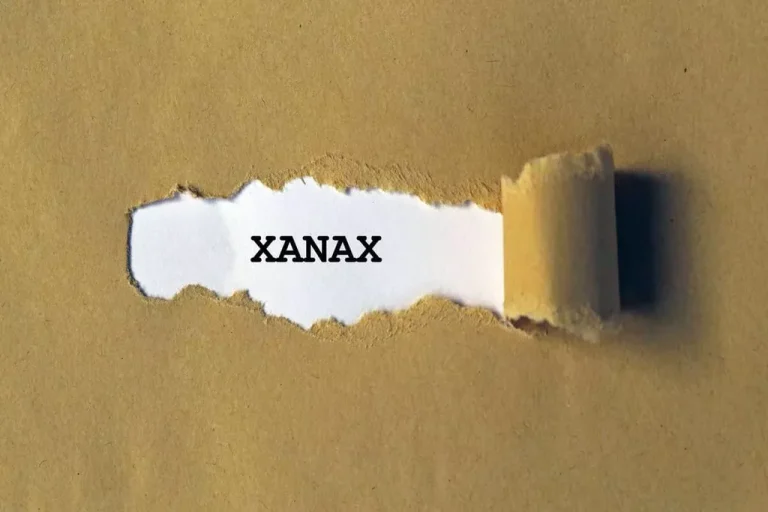
They also blame others for making them act as they do, rather than taking responsibility. Preliminary analyses were conducted to determine the ranges and distributions of variables. Two participants were considered multivariate outliers and excluded from the analysis due to unreliable response style. Additionally, 36 participants were excluded from the analysis because they took the survey in less than 600 seconds (10 minutes). The final analysis sample was 345 participants, which represents about 90% of the original 383 participants.

Diagnosing Alcoholism and Narcissism
- Pathways Recovery Center uses evidence-based therapy and personalized treatment plans to support clients with co-occurring NPD and AUD.
- For those in Pennsylvania, alcohol rehab in Lake Ariel PA is a good choice.
- An individual may be an alcoholic narcissist, someone who has NPD and then develops alcohol addiction and dependence.
- “Object love” is one way to describe relationships narcissists have with others.
- There are two types of narcissism, both of which may lead to tendencies in people that can, in turn, encourage addictive behaviors.
In such cases, alcohol rehab centers in Pennsylvania play a vital role in addressing these intertwined issues, providing specialized care for those in need. Many people struggling with substance misuse have co-occurring mental health disorders. Narcissistic personality disorder (NPD) and alcohol use disorder (AUD) share unique risk factors and often overlap with other conditions. Pathways Recovery Center uses evidence-based treatments to help clients with narcissism and alcoholism. Third, this study differentially evaluated the relationship between grandiose and vulnerable narcissism and alcohol outcomes. The findings of this study have potential implications for future treatment and research.
What Are the Mental Health Ramifications?

Being in a relationship with a narcissistic alcoholic can be challenging and emotionally draining. The needs and desires of narcissistic individuals may be prioritized over those of their partner, leading to neglect and resentment. Additionally, alcohol addiction can lead to unpredictable behavior and emotional instability. The challenges faced in this arena have provided her with a strong base of practice in assessment, treatment, and case management. As an alcoholic narcissist, you may employ avoidant behavior, projecting blame onto others, or rationalizing your drinking to protect your ego and self-image.
Emotional Coping
Some may have high self-esteem and a healthy sense of self-worth, while others may exhibit extreme narcissism and a lack of empathy for others. Additionally, there are different types of narcissism, including vulnerable narcissism and grandiose narcissism. In practice, experts emphasize the importance of addressing both the narcissistic personality disorder and the alcohol addiction simultaneously to achieve lasting recovery. By working on both of these issues, the person in recovery has a chance to regain control over their lives and find healthier ways to navigate their relationships and emotions.
The Link Between Alcohol and Narcissistic Personality Disorder
As seen in Verywell, Healthline, Psych Central, Everyday Health, and Health.com, among others. The outlook is even better in people with mental illness who abuse alcohol and other substances. Alcohol abuse disorder is characterized by periods of sobriety and relapse. Even so, with a combination of therapy, support, and persistence, around a third of people with AUD will maintain sobriety for at least a year and sometimes for decades.

Let Little Creek Recovery Center guide you down the right path to recovery, personal growth, and long-term sobriety. Although it is a relatively new phenomenon, social media addiction has been around since the advent of sharing pictures and status updates online. A 2014 study into narcissism and the use of internet pornography found a direct correlation narcissism and alcoholism between hours spent viewing pornographic material and the extent of narcissism. It also found that people who watch internet pornography are more likely to have narcissism than people who do not. Dr. Jenni Jacobsen, PhD is a medical reviewer, licensed social worker, and behavioral health consultant, holding a PhD in clinical psychology.
- When seeking treatment for alcoholic narcissism, it’s essential to address both the addiction and the underlying personality disorder.
- In this section, we will explore the toxic dynamics involved in relationships with alcoholic narcissists and the development of codependency and enabling behavior.
- Recognizing the need for intervention and understanding the available treatment options are important steps towards reclaiming a healthier and more fulfilling life.
- If alcohol misuse begins to impact your life, health, or safety, you might have AUD.
Narcissism and social media addiction
- Therefore, simultaneous treatment of alcoholism and narcissistic personality disorder is essential.
- Drinking is related to grandiose narcissism and self-esteem contingency (such as need for approval) (23).
- Research supports the link between some narcissistic traits and alcohol use.
- If so, that seems to make the kinship ties of narcissism and addiction even more evident.
- Both alcoholics and narcissists tend to view others as either enablers or potential threats.
People with narcissism and those with an addiction share similar character traits. These include a lack of empathy and a willingness to put themselves at risk in the pursuit of feeling superior. Research also supports the idea that people with narcissism are more likely to develop impulsive and abusive behaviors when using alcohol, drugs, sex, or even social media, leading to an increased risk of addiction. Grandiose narcissism was also a significant predictor of a positive alcohol problem evaluation, over and above alcohol use, social desirability and vulnerable narcissism. In other words, grandiose narcissists are more likely to regard the alcohol problems that they may encounter as good. This may be because of the social benefits they bring (e.g., holding one’s liquor might be seen as a good quality and doing risky things while intoxicated could be seen as “cool” in some circles).
- The intersection of alcoholism and narcissism is an area of increasing interest in the field of psychology.
- When people have a mental health condition that co-occurs with a substance misuse disorder, such as AUD, doctors may refer to this as dual diagnosis.
- Narcissists are full of entitlement and lack empathy for others, so they may do whatever they want to others with no regard to their feelings.
- Alternatively, you can access support symptoms for each condition separately.
- They often hurt people because they don’t have the ability or want to understand other people’s emotions.
- Grandiose narcissism predicts drinking behavior independently of impulsivity, which indicates that other mechanisms might be relevant (24).
If you or someone you know is struggling with the relationship between alcoholism and narcissism, seeking professional help is crucial. Addressing both conditions simultaneously through integrated treatment can lead to effective recovery and a healthier future. Little Creek Recovery provides specialized care to help you break the cycle of these co-occurring disorders. So, take the first step towards recovery today by reaching out to us for a professional for support and guidance.
This type of program integrates treatment for both addiction and mental health disorders, such as narcissistic personality disorder. When it comes to diagnosing https://ecosoberhouse.com/, mental health professionals may use the Diagnostic and Statistical Manual of Mental Disorders (DSM-5) as a guide. Narcissistic personality disorder (NPD) is a recognized mental health condition, while alcoholism is classified as a substance use disorder. Codependent individuals may develop a strong sense of responsibility for the alcoholic narcissist's well-being, feeling compelled to fix or rescue them from their destructive behaviors. They may make excuses for the alcoholic's actions, cover up their mistakes, or enable their substance abuse by providing financial support or covering up the consequences of their drinking. By recognizing the unique challenges faced by those struggling with an alcoholic narcissist dynamic, interventions and treatment options can be tailored to promote healing, personal growth, and recovery.